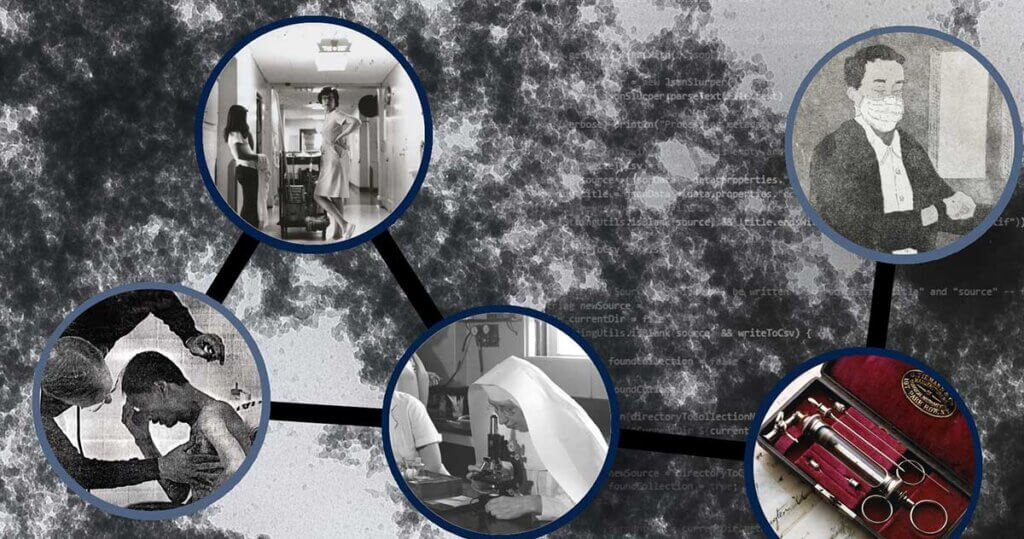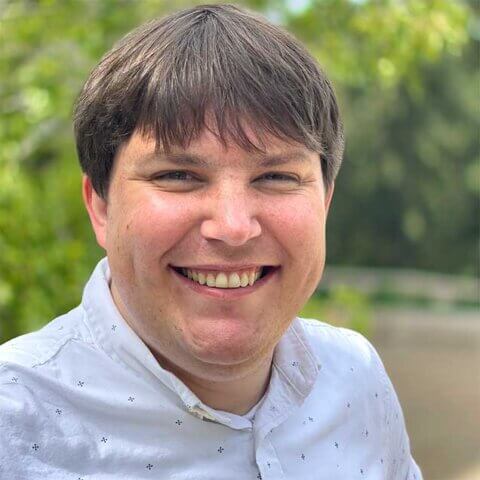The UCSF Archives and Special Collections’ Digital Health Humanities program is pleased to announce the Advancing Digital Health Humanities Institute’s (ADHHI) incoming cohort of 2024 Institute Awardees.
The ADHHI, hosted by UCSF and funded through the National Endowment for the Humanities’ Institutes for Advanced Topics in the Digital Humanities, gathers a cross-disciplinary group of scholars, community organizers, and practicing physicians to participate in a two-year program designed to introduce and orient researchers with humanistic and computational methods used by the digital health humanities.
This cohort will foster new conversations and connections across disciplines and career levels while representing various approaches to questions around the history of medicine, inequities in healthcare, and the experiences of care. We are delighted to welcome the 12 participants and their projects.
Delving into UCSF collections
A number of the participants are working with materials within UCSF’s archives. Dan Kabella, PhD, postdoctoral scholar at the UCSF Cardiovascular Research Institute, will draw on materials in the Industry Documents Library’s opioid collections and newly donated community objects to create a map that benefits those harmed by the opioid crisis.
Using the No More Silence dataset, Mairead Sullivan, PhD, chair of women’s and gender studies at Loyola Marymount University, plans to examine the history of the herpes simplex virus (HSV) in relation to the changing understandings of sexual health during the AIDS crisis.
Similarly, Edmund Cueva, PhD, professor of classics and humanities at the University of Houston-Downtown is also looking to the history of AIDS and referencing UCSF’s Archives as Data collections, to understand the linguistic framing of conversations around the disease.
Addressing global inequalities in health
Sutina Chou, a PhD candidate in UCSF’s Sociology Department, interrogates how the World Health Organization (WHO) has historically framed traditional, complementary, and integrative medicine (TIC). Chou is planning to make a digital timeline exhibit that points to the implicit racial biases, which have historically framed international health interventions.
The interest in the global systems of health and their impacts on medicine also informs Lorenzo Servitje, PhD, and PhD candidate Gillian Anderson’s project. These scholars from Lehigh University are developing a historical map to show when significant antibiotic research was published and where antibiotic compounds were developed.
Creating new archives
In addition to working in UCSF’s archives, some participants are building new collections that reveal undiscovered narratives around health and inspire new research arenas for future scholarship. Eana Meng, an MD-PhD candidate at Harvard Medical School and the Harvard University Department of History of Science, is preserving the collections of Tolbert Jones Small — a prominent Bay Area-based doctor and former physician for the Black Panther Party from 1970 to 1974. Small, alongside other Party members, pushed for healthcare as a site of social resistance and worked incorporate Eastern and traditional medicines in his practice.
Also interested in discourses of care, Mallika Khanna, a PhD candidate at Indiana University’s Media School, looks to the conversations around racial trauma and self-help to develop an exhibit that reveals the messy, sometimes contradictory ways care is dispersed and discussed.
Co-investigators Sisary Poemape Heredia and Louise Penner, PhD, from the University of Massachusetts Boston, are creating on a public facing exhibition. Their interactive map of Boston Harbor Island’s quarantine hospitals will examine the ways immigration and healthcare are historically entangled. They will encourage viewers to reflect and respond to their familial histories of institutionalization and immigration.
Centering communities
Kaylen Dwyer, MLIS, digital humanities librarian at Tufts University, also incorporates a viewer’s experience into their project on depersonalization and derealization (DPDR). Dwyer’s public-facing installation uses digital narratives of those affected by DPDR to viscerally explore their stories and experiences.
Esperanza Padilla, a PhD candidate in UCSF’s Sociology Department, looks to neurodivergence in her project, by critiquing how medical researchers have historically pathologized autism spectrum disorder (ASD). Her project contrasts videos produced by twentieth century behaviorist Ivar Lovaas and short films produced by Mel Baggs and others in the neurodivergent community.
Learn more
Learn more about the participants and their projects via the ADDHI page.

